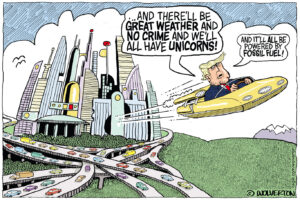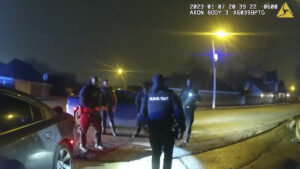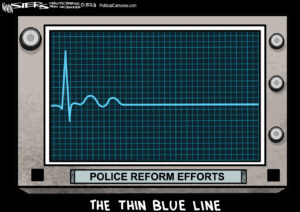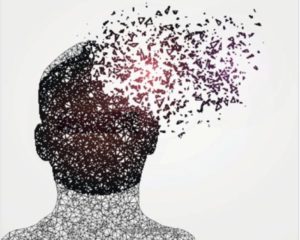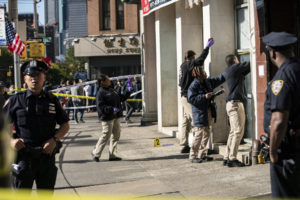What the Streets of Los Angeles Can Teach Us About Policing in America
The Truthdig team spoke with author Wellford (Buzz) Wilms about the complex relationship between urban neighborhoods and law enforcement.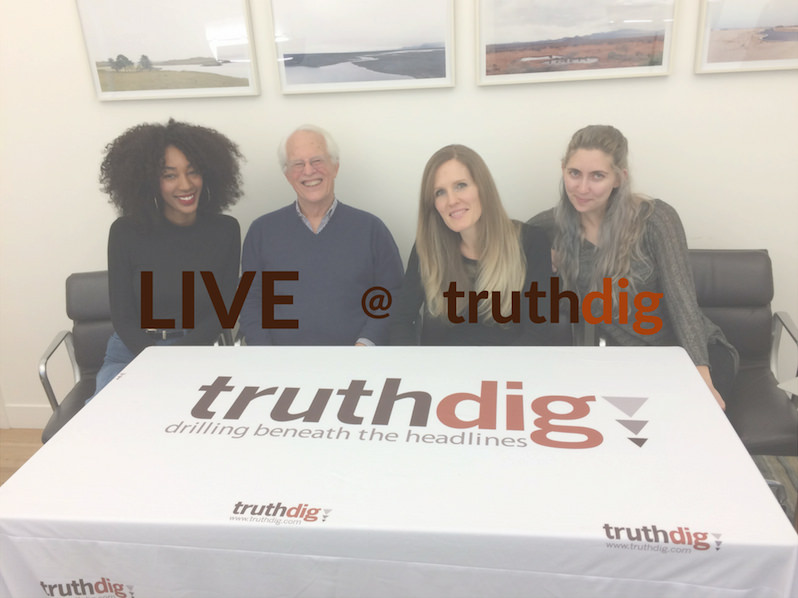
President Trump regularly gave negative labels to urban neighborhoods while on the campaign trail. Judging by his inauguration speech, his policy toward these same neighborhoods will be based on the assumption that inner cities are filled with crime, gangs and drugs.
But retired UCLA professor Wellford (Buzz) Wilms knows that in some inner-city neighborhoods, tensions between law enforcement and residents won’t be helped by a nationwide “stop and frisk” policy. Wilms spent years documenting the relationship between the residents of South Los Angeles — an L.A. neighborhood with a history of crime and gang violence — and the Los Angeles Police Department. On Thursday, Wilms sat down with the Truthdig team to discuss the complexities of policing inner cities. Watch the full conversation below:
Wilms’ years of experience culminated in his new book, “Blind to Injustice: How I Learned to See From Eight Years on the Streets With the LAPD and the People.” In it, Wilms shares stories of tragedy and hope — contrary to the “American carnage” President Trump loves to describe.
“Trump’s rhetoric doesn’t match reality. There is no broad ‘American carnage,’ ” writes Jamelle Bouie at Slate. “But one group does bear the brunt of violent crime: black Americans, who are most likely to live in the kinds of impoverished, segregated neighborhoods that produce criminals and victims. At the same time, black Americans are most critical of law enforcement and broadly supportive of movements and policies to reform policing.”
Wilms delves into the themes of race, criminality and law enforcement in his book, but he also explores how residents of South L.A. are fighting for change. “Blind to Injustice” portrays “residents of South L.A. trying hard to save and improve their neighborhoods against great odds,” writes Truthdig’s Bill Boyarsky in a recent review. “Wilms offers no clear-cut solutions. But he finds hope working with men and women reaching out to gang members.”
What does Wilms’ experience teach us about the nation’s law enforcement and race relations in the U.S.? How do federal policies affect lower-income, urban neighborhoods? And what positive developments are already underway?
Join us by tuning in to our Facebook page for the live conversation Thursday. Watch past editions of “Live at Truthdig” here.
—Posted by Emma Niles
Your support matters…Independent journalism is under threat and overshadowed by heavily funded mainstream media.
You can help level the playing field. Become a member.
Your tax-deductible contribution keeps us digging beneath the headlines to give you thought-provoking, investigative reporting and analysis that unearths what's really happening- without compromise.
Give today to support our courageous, independent journalists.

